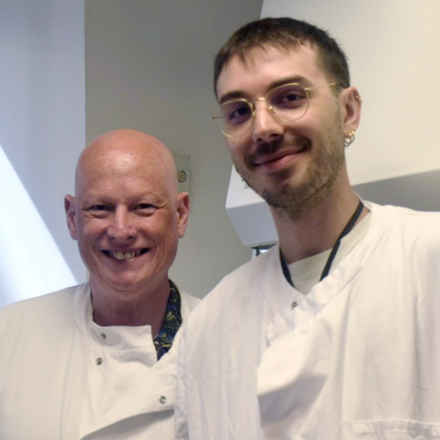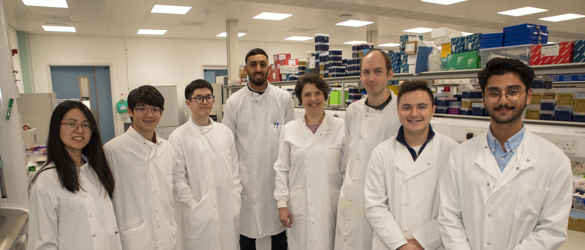Folding correction for Stargardt disease

Professor Mike Cheetham, UCL, Institute of Ophthalmology - £250,000
Stargardt disease is often caused by mutations in a gene called ABCA4. Mutations cause the ABCA4 protein produced to fold incorrectly and be removed from the cell. Without any ABCA4 protein the macula becomes damaged, which causes vision loss. This project aims to fix the misfolding, to restore ABCA4 in the cells, and therefore maintain a healthy macula and stop vision loss.
What is the problem?
Stargardt disease is largely caused by mutations in a gene called ABCA4. This gene creates the ABCA4 protein, which is key for cells in the macula to function. Most of the mutations in ABCA4 that cause Stargardt disease are called missense mutations, where there is a spelling mistake in the DNA. These spelling mistakes mean that the protein created from the gene is slightly wrong, and this causes the protein not to fold into the correct shape. These misfolded proteins are then removed and there is no proper ABCA4 protein in the macula cells.
What are they doing?
The researchers are looking to see if they can find drugs to correct the ABCA4 folding to hopefully restore ABCA4 function and keep the cells healthy. Drugs that can correct folding are being offered for other conditions, including cystic fibrosis. The team hope that this technology can help Stargardt disease patients too.
How can this help?
The hope is that if we can find a drug to correct ABCA4 misfolding, we can stop the progression of Stargardt disease. This is a brand new area of research and has already transformed the lives of people with cystic fibrosis.
See our other projects
Since 1987 the Macular Society has invested around £10 million in over 100 research projects.
Explore more research
Beating macular disease through funding medical research and improving the lives of those living with macular disease.
Get the latest research news from the Macular Society
To hear about life-changing research and treatments, subscribe to our monthly enewsletter today. Together we can Beat Macular Disease.
Sign up to our free email newsletter



